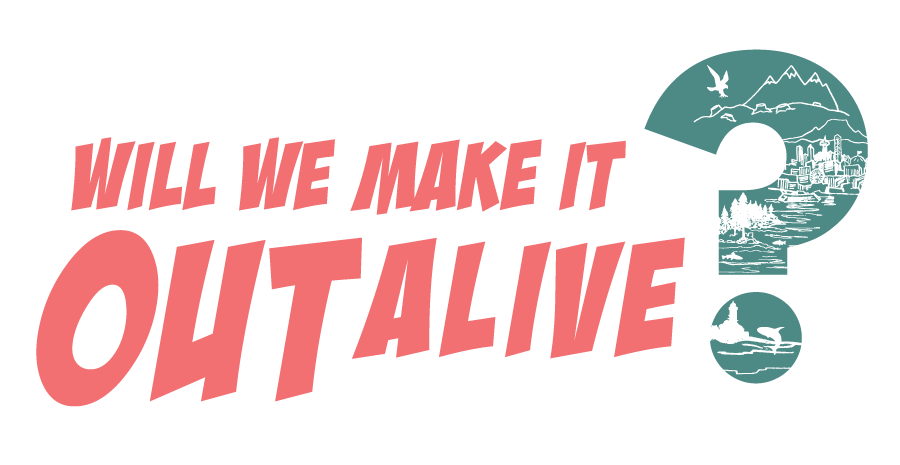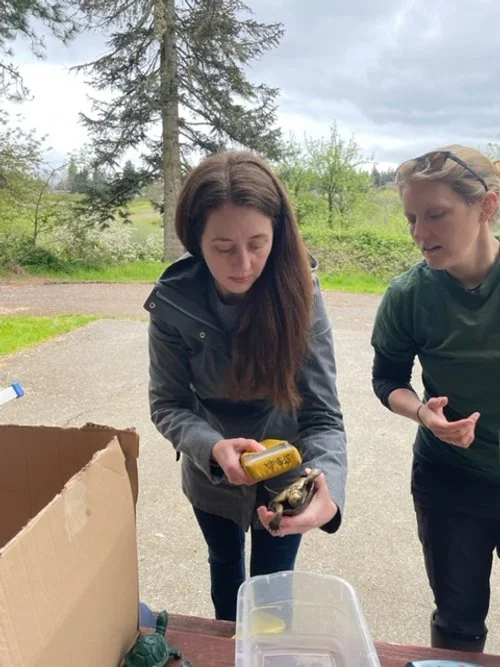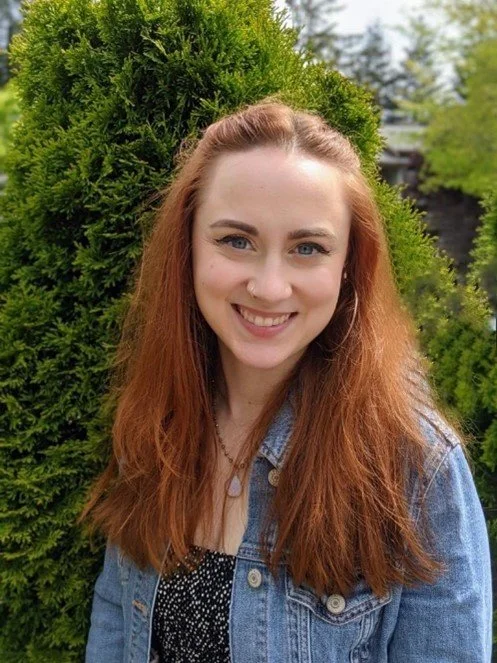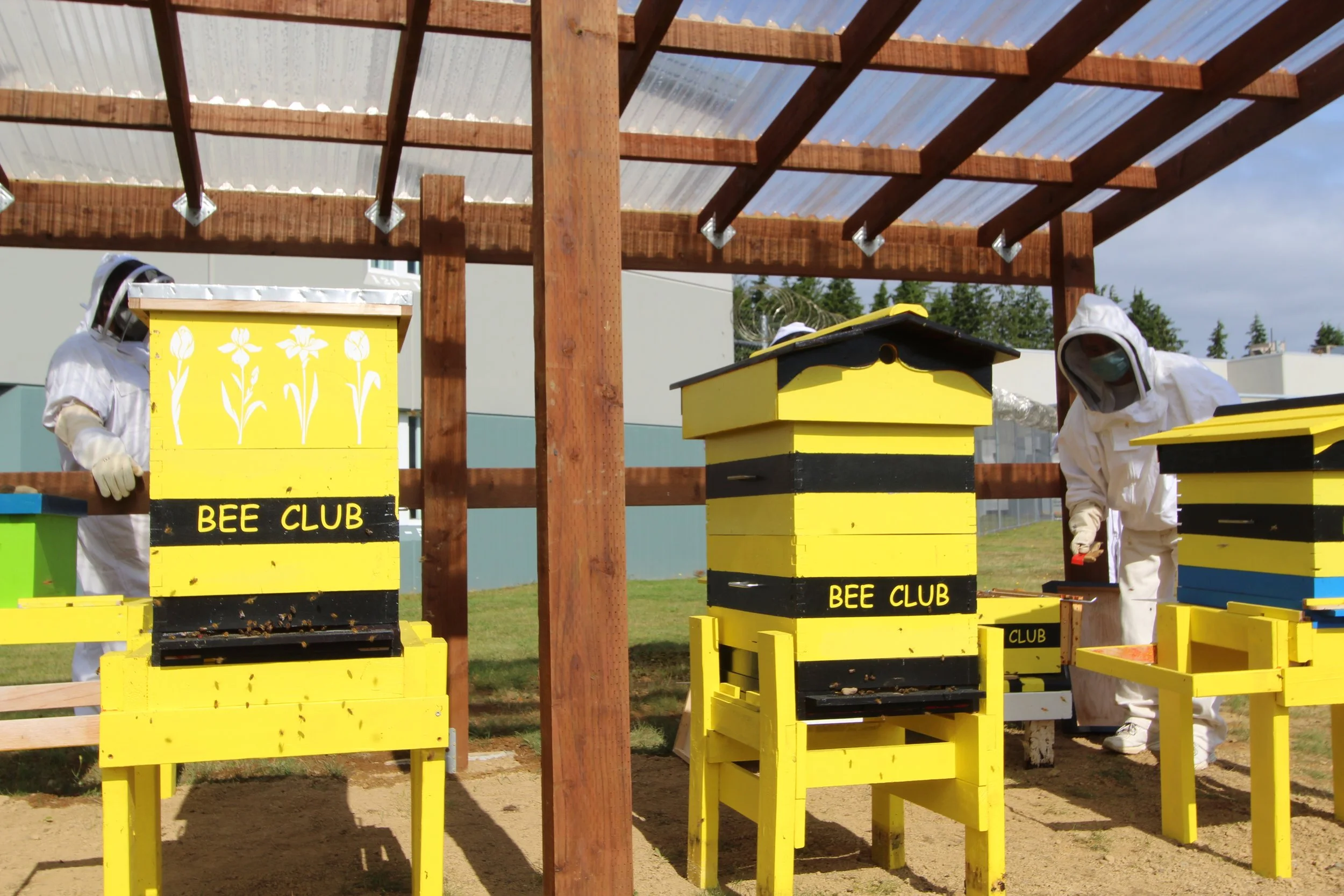S3E6: Letting Knowledge and Nature In
/Science and Sustainability Education in Prison
Photo Courtesy of SPP Staff
Welcome to Season 3, Episode 6, Letting Knowledge and Nature In: Science and Sustainability Education in Prison. This season is all about the Sustainability in Prisons Project (SPP), how they bring education, nature and training into the prisons to reduce recidivism and protect and enhance our environment. This season is seven episodes long. If you’ve missed any episodes, you can go back in our arc-hives and listen. So far, you’ve heard how it all started; a background on the prison system and an introduction to SPP; how SPP is a network of partners working to bring education and nature into the prison system; we’ve also learn more about the SPP Conservation Programs and the Native Plant Nurseries; and rearing endangered Taylor’s Checkerspot Butterflies at the Mission Creek Correctional Facility.
In this episode we will have our final interview of the season with Kelli Bush, SPP Co-Director and introduce Emily Passarelli, Education and Outreach Manager for SPP. We’ll be chatting with them about SPP’s science education programs in Washington prisons.
Guests in this Episode
Photo courtesy of SPP Staff
Kelli Bush
Kelli Bush is the Co-Director of the Sustainability in Prisons Project. She helps bring nature, science and environmental education into prisons in Washington. She also leads staff from The Evergreen State College that coordinate programs in the prisons. She has a Bachelor's degree in Agriculture Ecology from The Evergreen State College.
Photo Courtesy of SPP Staff
Emily Passarelli
Emily Passarelli is the Education and Outreach Manager at The Sustainability in Prisons Project (SPP). She first worked with SPP as a graduate student from 2015-2017 as the Green Track Program Coordinator. While there she helped coordinate Roots of Success and helped develop the framework for the statewide Beekeeping Program. After she graduated, she went on to work with Centralia College at the Washington Corrections Center as their Education Program Manager. In 2021, she rejoined the SPP Team as the Education and Outreach Manager.
SPP Education Programs
Kelli Bush starts us off by explaining what the Education Programs portion of SPP is. While all of SPP’s programs include education, there were some programs they weren’t sure how to categorize so they created a catch-all Education bucket. Some of the programs in this bucket include peer-led gardening and composting, beekeeping certifications, and the environmental engagement workshop series.
Education in Prison
Photo Courtesy of SPP Staff
Offering education in prison definitely has its challenges, because prisons weren’t designed with education in mind. Finding classroom space, accessing technology, lack of internet, and the difficulty of bringing traditional science labs into prisons are some of the major barriers. SPP is creative and is developing science curriculum and labs that work in a prison setting. They are also looking into ways of developing secure internet within prisons, as other states have done. Having hard copy materials is the most resilient way to deliver content, because it can be broadly shared and even consumed by incarcerated individuals who need to be separated from others and are unable to attend regular classes.
The workshop series is a program where scientists, professors, nonprofits, and others with knowledge to share come into the prisons to share 90 minute presentations on a variety of topics the incarcerated population is interested in learning about. The program has been very popular and workshops were always filled to capacity. The program has unfortunately been put on hold due to the pandemic, but SPP hopes to start it back up in the future. In the meantime, SPP is working to develop education modules, which are presentations of 5-20 pages that can be delivered through printed materials. We wanted to tap into our listener hive mind, so if any listeners (or blog readers) feel like they have science or sustainability educational content they would like to share, SPP welcomes idea pitches! If they are interested in your idea, they will even guide you through creating content by providing the format and tips on making the content most effective for the prison audience.
Kelli rounds out her time with us by telling us about a new composting curriculum currently being developed and giving us an update on how those individuals participating in some of these science education programs can earn college credit. They are working to offer college credit for more of the programs and to offer transferable credit while still incarcerated rather than individuals getting a certificate that they can “redeem” for college credits if they attend Evergreen.
We’d really like to thank Kelli for being such a big part of this season by not only being interviewed for 5 out of the 7 episodes, but also for helping us produce this season and introducing us to all of our amazing interviewees. She is the bees’ knees! We really couldn’t have brought you this season without Kelli Bush!
Gardening Program
Photo Courtesy of SPP Staff
Emily Passarelli joins us next to talk more in depth about some of the Education Programs offered by SPP. The Foundations in Gardening Course has a robust manual and can be taught in a peer-led classroom environment, or through self study. Peer-led education means classes are facilitated by other incarcerated individuals, and can take different forms. Classes can have one peer instructor, or they can trade off and each teach a different module to each other. This model really draws people in and shows them that if their peers are learning and teaching that they can see themselves doing the same and people start to bee-lieve in themselves.
Emily shares that there are gardens in each of the 12 prisons. These can take different forms, such as flower gardens, food gardens, native plant gardens, gardens with culturally significant meaning to different populations, and planter boxes people can rent in some of the prisons to grow anything they want (within reason). There are huge therapeutic benefits to gardening, or even seeing gardens (I can personally attest to this) and studies have shown that gardens can reduce stress and tension and improve cognitive ability, among other benefits. In this vein, there is a Nature Imagery program where incarcerated people who are in intensive management units (or IMUs) can go into a room with a television for an hour and view nature imagery. These people are stuck in a cell for 23 hours a day (luckily not for punishment anymore) and aren’t able to experience nature directly, so at least being able to view images of nature can have similar stress-reducing effects. Emily shares a lot more information about gardens, including who can participate in gardening, how much time incarcerated people who work in the gardens spend there, and what happens to produce grown in the gardens.
Beekeeping Program
Photo courtesy of SPP Staff
Some of the prisons in Washington have beekeeping programs. These are offered in partnership with local beekeeping associations. Expert beekeepers train new beekeepers and help facilities get new hives and materials. Washington has certified 507 beekeepers! Emily “schools” us on our misconceptions of prisons being gray, concrete behemoths and educates us on the beekeeping program. We learn that bees eat lots of sugar, not just plant nectar! We are also shocked by the fact that a lot of the hives are lost over the winter. They are always trying new things to try to make the hives more successful, so hopefully they will make strides and be able to share that knowledge with others. If they are successful, they hope to start a queen rearing program!
Photo courtesy of spp staff
Emily shares that the incarcerated beekeepers unfortunately don’t get to keep any of the honey, but they are very creative and each program has designed their own labels and logos! Sometimes they can try the honey during tasting workshops. Other times it is given out to staff or special guests, or even sold and the proceeds go back into more beekeeping materials or other educational programming for the incarcerated.
Emily’s Master’s thesis was on the effects of environmental education on incarcerated students. Emily shares more about her research and findings with us. She had some expected results, but also some that were more unexpected. It turns out that working with living things has huge impacts on incarcerated individuals, including shifts in empathy for other beings, other people, and themselves.
After making me feel like my heart was growing three sizes bigger hearing about people learning their self-worth, Emily regales us with the time she started a fire in prison. Ha!
Until Next Time…
Thank you so much for joining us this episode! We hope you have learned more about learning in this episode…at least pertaining to education in the WA State Prison System.
All of SPP’s programs include education, but today we focused on those that SPP puts into their “Education” bucket. SPP is great at finding ways to make science education happen, even with the many hurdles in front of them. They have found the peer-led education model to be very effective in prison settings, particularly during a pandemic!
Gardening and beekeeping are two programs under SPP’s broad “Education” bucket. It’s great to hear that all of the Washington prisons have gardens since they have been shown to reduce stress, and I imagine prisons can be a very stressful place for all involved. There is even a special garden for “lifers”! It’s also encouraging that they have beekeeping programs, because we need bees to pollinate most of our food. It was eye-opening to hear about some of the struggles, especially with keeping the bees alive over winter, and hopefully some of the things they are trying will lend itself to saving more hives in and out of prisons.
As Kelli mentioned, the highly popular workshop series has been suspended due to the Covid pandemic and we’re not quite sure when it will be starting up again. However, if you have an idea for a workshop or training, you can still pitch your ideas and develop education modules! SPP can help guide you with formatting and give you tips on making the content effective for the population, as well as being delivered through written content. We hope some of our listeners were inspired by this episode to develop some science education materials for the incarcerated on topics near and dear to their hearts!
Please join us for our next episode which will be the 7th and final episode of Season 3! We’ll be hearing just a tiny bit more from Emily Passarelli, and we’ll speak with Grady Mitchell about the Roots of Success program, another prison education program. That episode will be coming your way in two weeks, on Tuesday, August 30.
Please don’t forget to rate, review and subscribe on Apple Podcasts, Google Podcasts, Spotify, Stitcher, or wherever you get your podcasts (like Tune In, Castbox Himalaya, iheartradio, etc). Please let us know what you think in the comments below or on our Facebook, Instagram or Pinterest pages.
Until next time, Will We Make It Out Alive?









